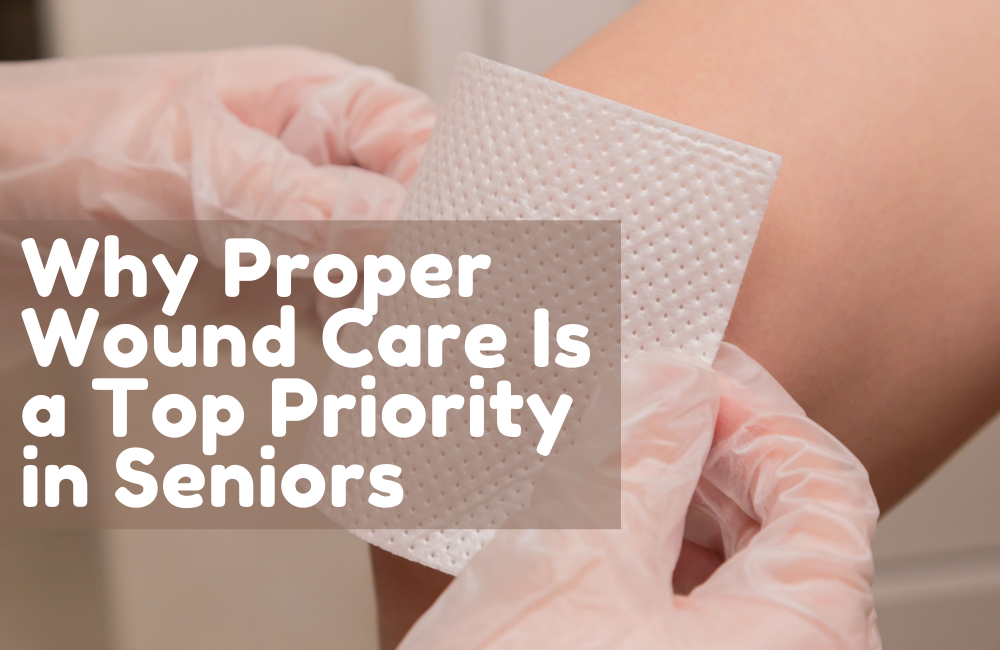Chronic wounds are getting increasingly common as the population ages and chronic illnesses become more prevalent. Chronic wounds, which commonly affect the elderly, are described as wounds that take longer than four to six weeks to heal.
Pressure ulcers can progress to chronic sores and can be excruciating, uncomfortable, and hinder normal movement. The mortality rate for older persons with these sorts of wounds is considerably greater.
What Is Wound Care and How Does It Work
Wound care is the entire process of helping you heal from any wound that won’t heal independently. There’s a lot to take care of, from the first wound dressing following treatment to bandage changes, cleanings, testing, and physical therapy. Wound care certified care professionals have undergone challenging qualification courses demonstrating that they have the expertise to guide a patient through the healing process from a fresh wound to full recovery.
Why Proper Wound Care Is Vital in Elderly Patients
Because aged skin heals more slowly than younger skin, it creates an ideal breeding ground for infections if it is not adequately cared for. Seniors are at a higher risk of infection, especially in serious wounds, since they may lack the mobility, skill, or mental competence to care for their wounds.
A disease might have catastrophic consequences for an older adult. In elderly adults with weakened immune systems, infections can spread fast, jeopardizing the patient’s long-term health or even life. Medical wound care that is comprehensive and proactive reduces the risk of injury, which leads to poorer patient health outcomes.
What Are the Potential Wound Complications?
A wound causes issues for the patient’s skin cells and removes the skin’s natural protective covering, causing itching and discomfort. For a good wound healing process, the first seven days following an injury are crucial. Improper management can lead to an infection that further develops into peritonitis and cellulitis, that’s on top of a longer recovery time.
How To Manage Elderly Wounds Properly
Chronic wounds in the elderly require extra attention and monitoring and should be handled by a trained caregiver. If you have a wound, it is critical to treat it as quickly as possible. To stop the wound from worsening, you must clean all affected areas routinely and thoroughly. You should also avoid scratching or massaging these regions since greater exposure could complicate an infection.
While wound care should always be handled by a professional, there are a few things you can do to help avoid them. These are some of them:
- Making necessary but risky trips like comfort rooms closer to the elderly
- Gently removing the dressings
- Moisturize skin regularly to avoid skin tears.
- Eating a well-balanced diet.
Chronic wounds may cause a range of problems for the elderly, so it’s critical to recognize the dangers and treat them to avoid consequences.
Conclusion
Hiring a wound care-certified licensed clinician and therapist should be a top priority for anybody caring for a senior loved one at home. Working with a wound care-trained clinician ensures you get the adequate possible treatment.
If you want to enjoy the best home and hospice care in San Diego, Bridge Home Health & Hospice is at your service! Our team of licensed physicians, nurses, and aides are ready to make your senior loved one’s last years as comfortable as possible. Get in touch with us today!

